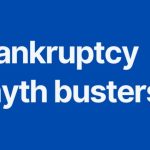A DOCA provides additional time to help a company get back on its feet
A Deed of Company Arrangement or DOCA is a proposal that is put to creditors by the directors of a company in Voluntary Administration (VA) that binds all creditors. The proposal governs how the company’s assets and affairs will be handled.
One of the attractions of a DOCA is that it provides additional time to help a company get back on its feet – which may be all it needs to avoid liquidation. DOCAs help a business to keep operating with some or all of its normal business operations.
A DOCA is a binding arrangement between a company and its creditors
A DOCA is a binding arrangement between a company and its creditors, which governs how the company’s affairs and assets will be handled if it is danger of becoming insolvent or has entered into voluntary administration.
The main purpose of a DOCA
The main goal of a DOCA is to enable a business to continue trading and to produce a better outcome for all relevant parties, rather than simply placing it into liquidation.
If creditors accept a DOCA, the company must sign the deed within 15 business days of the creditors’ meeting – unless the court has allowed for a longer period of time. A DOCA also binds all unsecured creditors – even if they voted against the proposal.
Company executes a DOCA
After the DOCA is executed, the Voluntary Administration ends and becomes a Deed Administration that is governed by the DOCA.
If the company does not sign within the required time, it will automatically go into liquidation and the Voluntary Administrator becomes the Liquidator.

Resolution: DOCA is terminated upon final payment & settlement of debts
A DOCA allows for the full and final settlement of the debts, even if the debts are not paid in full. The company directors also regain control of the company although with certain restrictions attached.
The DOCA is terminated after the company makes its final payment and from this point, the company can continue as a solvent company and move on from the administration.
There are a number of advantages to a DOCA, particularly around allowing the company to move forward if it finds itself in financial difficulty and has appointed an administrator. If the company finds a solution through entering into a DOCA it may result in a better outcome than being wound up.
Extensive DOCA experience, fast assessment
At WAIS, we have extensive experience with DOCAs and can quickly assess your situation to determine whether this option is the best one for your company’s situation.
Ask our experts if a DOCA is the right solution for yourself or for your client

Key benefits of a Deed of Company Arrangement (DOCA)
Remain operational
Helps a company avoid liquidation and continue on with business.
Staff employment
The employment of staff continues if possible.
Regain control
A Director can regain control of the company once the DOCA is finalised.
Greater return
Has potential to provide larger return for creditors.
Corporate solutions for businesses experiencing financial distress
Corporate Insolvency
A company that cannot pay its debts when they are due is considered to be insolvent. There are several warning signs that a company may become insolvent…
Read moreReceivership
If a company is in financial difficulty, a receiver may be appointed to take control of some or all of its assets to ensure the payment of secured creditors…
Read moreLiquidations
When the assets of a business are liquidated, it means they are converted into cash. This situation spells the end for the business, as with stock, equipment…
Read moreDeed of Company Arrangement (DOCA)
A DOCA can help a company avoid liquidation and remain in business allowing it to continue with all or some of its usual business operations…
Read moreSmall Business Restructuring
As Small Business Restructuring Practitioners, our Registered Liquidators ensure you benefit from the insolvency reforms. WAIS Registered Liquidators have vast experience in restructuring small businesses…
Read moreVoluntary Administration (VA) Experts
Voluntary Administrations (VAs) allow insolvent companies to continue to operate, or, if this is not possible, they provide for a greater return to creditors than they would otherwise receive if the business was liquidated…
Read more

















